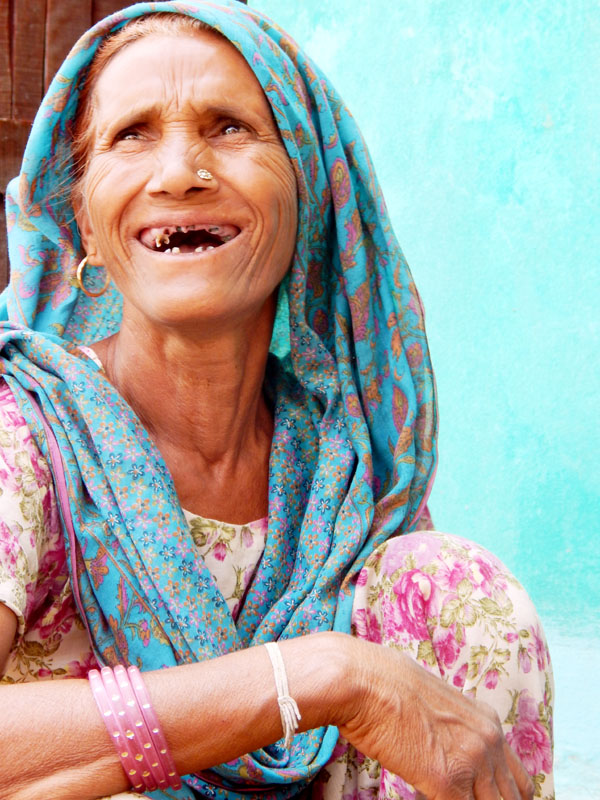Dr. Bharti Prabhakar
Ever so often, Soma Devi, a septuagenarian, relives the horrors of migrating to Jammu on the Indian side from Sialkot District of undivided Punjab along with several others during the Partition in 1947, struggling for several days without food, water and shelter,. The sense of loss of identity they arrived with back then was their biggest fear then; and has remained with them till date.
The cross-border migration had occurred on an unprecedented scale those painful months. Thousands of families migrated to different parts of India, with some choosing to take shelter in Jammu itself. Those who migrated to other parts enjoy the status of being citizens of the state and the nation, whereas the refugees in Jammu are considered to be Indian ‘nationals’ but not citizens of the State. They have not been granted citizenship under the Constitution of Jammu and Kashmir recognized under Article 370 of the Constitution of India that confers a ‘special status’ on the state of Jammu and Kashmir.By virtue of this clause,only those originally from the state have citizenship rights and are state subject holders.
Today, a population of 2.5 lakh West Pakistani Refugees (WPR) is residing in Jammu, Kathua and Rajouri Districts of the Jammu region. They have neither the right to immovable property, to a Government job, to vote in the Assembly and local-bodies’ elections, to a bank loan nor even the right to higher technical and professional education. Of course, they have been participating in the LokSabha election since 1967, when the jurisdiction of the Election Commission of India extended to Jammu & Kashmir.
35 kilometers from Jammu town, as one approaches Marh block, many elderly women, along with Soma Devi, can be seen picking up bajri (stones) from the River Tawi. This back-breaking menial labour has been their source of livelihood for many decades now. Men in the family work as daily wager laborers involved in harvesting (that too on others’ land), digging and construction work. None of them have a regular income. To make ends meet, the womenfolk stepped out to work but owing to their illiteracy, they could only find work as unskilled as picking up bajri or to work as part time maids in Jammu city, earning 40-50 Rupees a day.
The vast majority of the first and second generation women among this community are illiterate, while in the third generation, women have not studied beyond Matriculation; and those from the fourth (present) generation, who completely understand what education can bring them, are ironically unable to pursue their studies owing to difficult financial conditions.Furthermore, in the absence of their permanent resident certificates they are not entitled to the various government-run scholarships to support their studies – which cuts down their hopes of education, a job and a safe and secure future.
For these women, the day starts early – they fetch water, fodder and fuel, tend to the livestock,, then cook the day’s meals for the household, before stepping out for the 14-16 hour day. The home finances and managing purchases is their sole responsibility as well. Needless to say, they are the last ones at home to sleep at night.
Refugee women are ignored in many matters which are of great concern to them – health being the most fundamental and pressing. Several Government schemes have been designed to benefitt women falling below the poverty line but these exclude the women from such refugee communities owing to the fact that they are not ‘state subjects’. The odds are piled up against them, with drudgery, ill health, illiteracy, deprivation and humiliation being their lot over the decades.
With few basic facilities, open defecation, inadequate menstrual hygiene, improvising washrooms using acharpai (cot) as a cordon whilebathing are common. Except for a few adolescent girls who, working as maids in the city, are aware of the use of sanitary pads, most admit to the use (and re-use) of cloth due to poverty. Evidence suggests that lack of access to menstrual hygiene (which includes sanitary napkins, toilets, availability of water, privacy and safe disposal) likely contributes to local infections, including Reproductive Tract Infections (RTI). Studies have shown that RTIs pose grave threats to women’s lives, livelihood and education. Lack of awareness is a major reason for unhygienic menstrual practices.
As far as family planning is concerned,each family comprises three-five children on an average. Women adopt sterilization over pills, IUDs and condoms as the preferred method of contraception. These women believe that if the menopt for vasectomy, they will grow weak and that will affect their capacity as a man to work. Evidently, here too, unawareness plays a big role that has taken away focus from women empowerment. Inability to reach this section of the population with health services could become an impediment in the country’s progress towards the health.
Not surprisingly, most of these women are visibly malnourished, deprived as they are of a balanced diet. They cook their meals on chulhas (mud stoves) because they cannot afford to buy LPG cylinders at exorbitant rates. They have no access to nutritious food, clean water, healthy life style. There are no self-help groups, no loans and virtually none of the women have their own bank accounts. Simply because they are not recognized by the state as its people and have no voting rights, no organization or agency has reached out to them. The factor of hopelessness has engulfed them over the passing decades and they do not see any resolution of their plight. With tears in their eyes and dream to see change, they pray for the better future of their children and not becoming forever a victim of ill-designed policies that ignore the basic fact of them being humans first and refugeeslater.
(Writer is a SanjoyGhose Media Fellow.
( Charkha Features)
Trending Now
E-Paper


